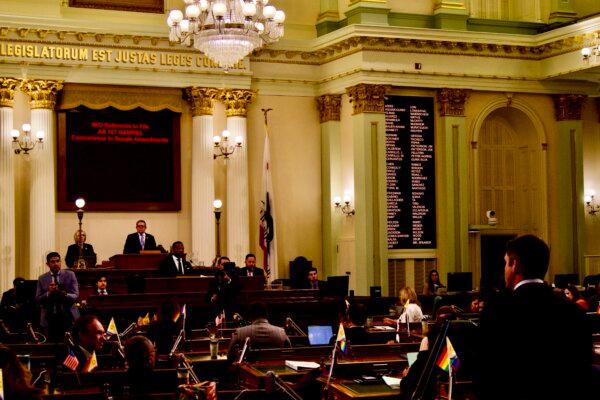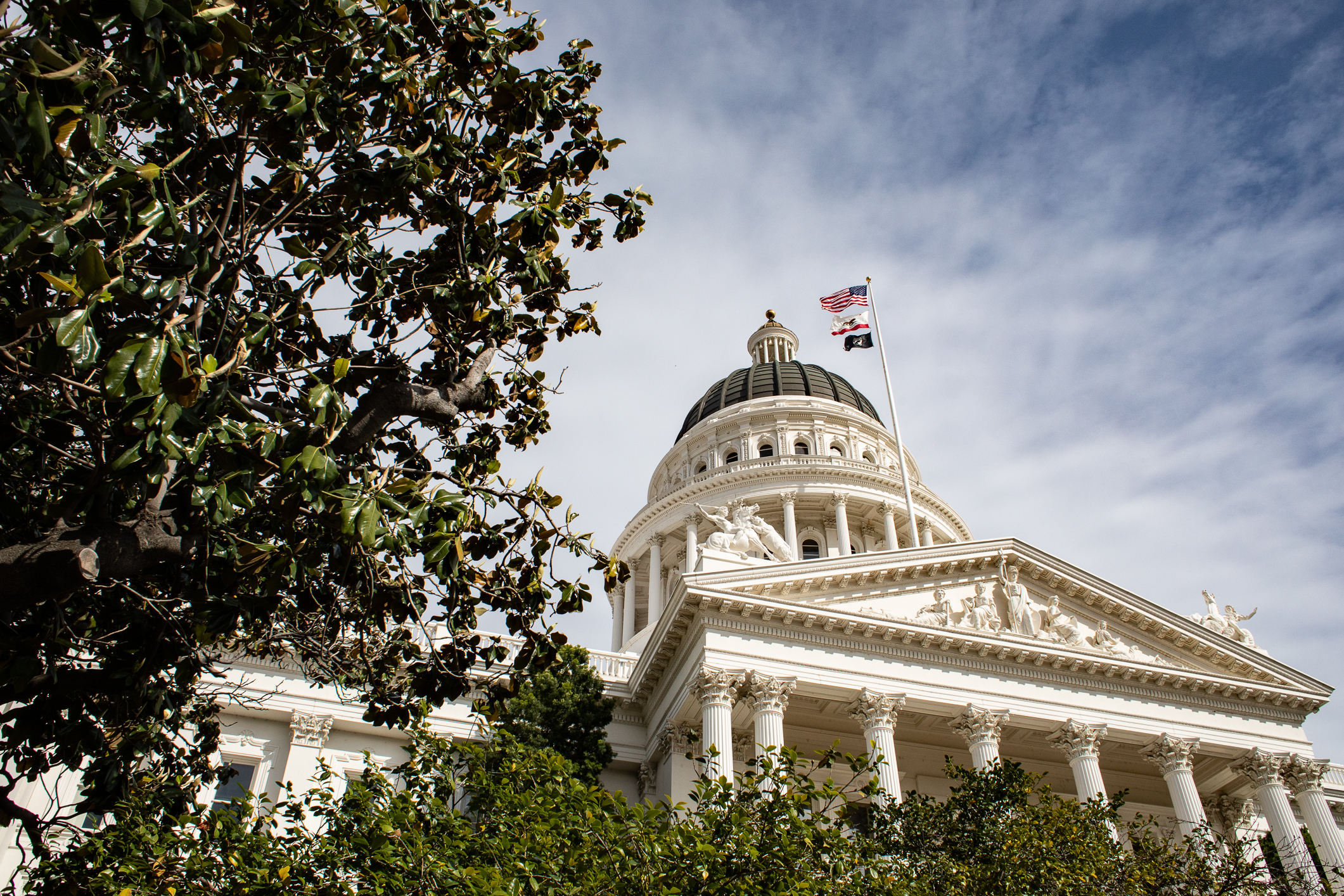As the state faces a significant budget deficit, California lawmakers on June 13 approved a budget plan for the next two fiscal years that includes $27.2 billion in spending reductions, including cutting more than $1 billion from the state’s Department of Corrections and Rehabilitation.
“With the budget this big, and with the deficit we have, there are a lot of things we need to work through,” Assemblyman Jesse Gabriel, who is also the chair of that body’s budget committee, told reporters after the plan was passed. “It’s about what are the most effective solutions and what are the programs and services that we think are the best way to go forward.”
For the upcoming fiscal year, which begins on July 1, the state is facing a budget deficit of at least $45 billion, although differences between the governor’s and budget analyst’s estimates exist regarding the exact amount. A budget bill passed in April also solved approximately $17 billion in shortcomings.

California state Assemblyman Jesse Gabriel presents his budget bill AB 107 on the Assembly floor at the Capitol in Sacramento, Calif., on June 13, 2024. (Travis Gillmore/The Epoch Times)
Even with the budget plan, there is still an $11 billion revenue estimate discrepancy between it and the state’s nonpartisan Legislative Analyst Office, which could exacerbate a potential budget shortfall in the coming fiscal year.
With votes on the plan now in the books from both the Assembly and Senate, lawmakers will begin negotiating with Gov. Gavin Newsom in order to have California’s budget approved by the end of the month.
Additionally, in a bid to save billions of dollars annually, the budget plan requires all state agencies to reduce expenditures by 8 percent.
While uncertainty exists as the state’s Department of Finance works with officials to navigate those cuts, the budget chair said he anticipates such reductions will occur in full—without cutting staff or hours, a promise made by the governor in May.
“We would expect that something we write into law would come to fruition,” Mr. Gabriel told The Epoch Times. “Part of the conversation that we’re having is to make sure that we’re doing it in a way that’s realistic, achievable, and is actually going to result in savings.”
State Sen. Roger Niello, vice chair of the Senate’s Budget Committee, said the now-approved plan is only fleeting, as it creates uncertainty for future years.
“This budget is balanced nominally, but it is not sustainable,” Mr. Niello told The Epoch Times. “There are a number of items in there that will create deficits as we get through the budget year.”
Programs that would see cuts under the plan include those related to housing, the judicial system, and the office of emergency services.
Of note are recommended cuts to the state’s prison and correctional system, which could mean that the department will need to identify how to reduce spending by $500 million, in addition to reductions to some programs.
Another cut in the plan is related to funding for an increase in the state’s health care worker minimum wage, approved last year and set to take effect on July 1. The program requires approximately $2 billion annually, but the newly approved legislative plan allots only $200 million.
After the start date for the minimum wage increase was delayed by one month to help reduce pressure on the current fiscal year’s budget, its future is uncertain, although supporters suggest that the wage increase will remain.
The Assembly passed the budget plan on a 59–14 vote. The vote was 29–8 in the Senate.
Some lawmakers expressed concern about the plan and suggested that $4 billion in planned expenditures for illegal immigrants, including expanding free health care access, should be reprioritized.
“The people that walked across the border yesterday did not pay taxes or anything,” state Sen. Brian Dahle said on the Senate floor before ultimately voting against the plan.
He also took exception to plans to spend about $1.1 billion on high-speed rail while cutting more than $750 million slated for housing veterans.
“We’re prioritizing transit over veterans,” Mr. Dahle said.
With revenues falling short of spending by a wide margin, he and other lawmakers also highlighted businesses leaving the state as a primary factor for the budget deficit and said more needs to be done to incentivize investment in California.
“[California is] one of the toughest places in the country to do business,” Mr. Dahle said. “Show me one thing in this budget that’s going to help keep a business in California. I challenge you to find one, because I can’t find anything.”
Supporters of the plan countered that it is mindful of the budget deficit and prioritizes core programs and services.
“This is a big, bold plan,” state Sen. Mike McGuire, who is president pro tempore, said while debating the bill. “I’m proud that we’re putting forth a balanced budget, not just for this year, but also for the next fiscal year.”
Following the governor’s lead, as proposed in his May budget revision, the legislative plan also includes prospective solutions for the 2024–2025 and 2025–2026 fiscal years.
Differences between the governor’s and legislature’s proposals include public school funding—with legislators providing $2 billion more—and the middle-class scholarship program, which provides assistance for up to 40 percent of tuition costs for eligible students at a cost of more than $900 million annually to the general fund, with lawmakers restoring the cuts suggested by Mr. Newsom.
The legislative plan also rejects cuts to CalWorks—a program that provides cash assistance to low-income families—and other program reductions proposed by the governor.
“Make no mistake, this budget that we’re putting forward today will stand on its own and is worthy of being California’s next budget,” Mr. McGuire said. “This is responsible budgeting and protects the responsible progress that we have made over the past years.”
As negotiations progress, more details will be included in so-called budget junior bills and trailer bills that could be introduced in the coming days.
The Senate leader said a plan could be on the floors of both chambers for a final vote by as early as June 20.














